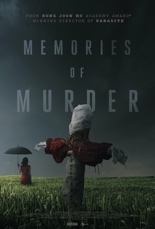
 In mid-2019, Bong Joon Ho’s Parasite stunned Hollywood as a masterstroke marriage of clockwork suspense and class-war satire, making the South Korean picture a shoo-in to win foreign-film honors at the Academy Awards.
In mid-2019, Bong Joon Ho’s Parasite stunned Hollywood as a masterstroke marriage of clockwork suspense and class-war satire, making the South Korean picture a shoo-in to win foreign-film honors at the Academy Awards.
In early 2020, Bong Joon Ho’s Parasite stunned Hollywood again, not for winning that International Feature Film Oscar as expected, but for winning three other Oscars in categories it wasn’t “supposed to,” including Best Director and, most controversially, Best Picture.
On that historic night, many watching at home may have heard Bong’s name and asked themselves, “Who?” Some of us, however, had another question in mind: “What took you so long?”
Judging from the likes of The Host, Snowpiercer and Okja, Bong demonstrating considerable skill and confidence is neither new nor novel. You can see it even in his second film, 2003’s Memories of Murder, briefly re-released following Parasite fever (and during COVID-19 fever, unfortunately).
As police inspector Park, Parasite papa Song Kang Ho investigates the sexual assaults and murders of several schoolgirls in the area in 1986. Memories opens with the most recent victim discovered discarded in a cement ditch alongside a nondescript road to, seemingly, nowhere. A local mentally disabled man (War of the Arrows’ Park No-shik) is brought in for questioning — which is to say bullied, abused and coerced into a confession he doesn’t understand. It’s only after the pragmatic detective Seo (Kim Sang-kyung, 2013’s The Tower) joins the force from Seoul that Park begins to look beyond the boundaries of his closed mind.
More introspective than inspective, what could have been an escapist serial-killer thriller instead feels a bit too realistic, as if actual evil were somehow captured on film, the way David Fincher did with Seven (and soon would again with Zodiac). Bong exhibits a similar command of the camera, shooting long, complicated shots with each corner of the screen crammed and carefully choreographed to bristle with the activity of chaos.
With expert performances all around, Bong manages to keep Memories of Murder at a consistent level of greatness until the final scene. In that coda, which leaps nearly 20 years forward, he not only offers no easy answers, but gives viewers a divisive final shot — one I don’t think works, even if almost all of the two hours before it does. —Rod Lott

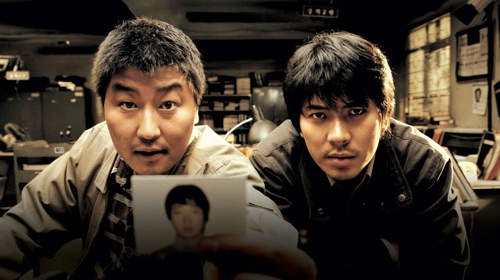
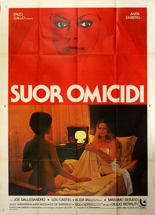
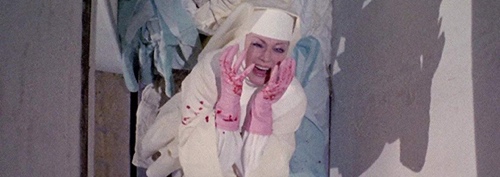
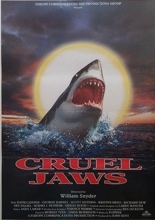
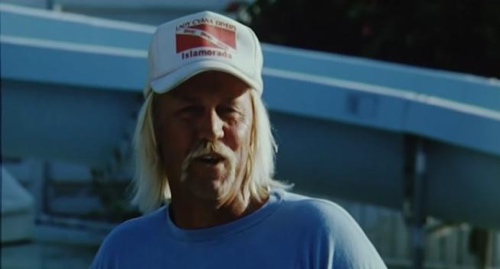
 One of the more memorable sketches in 1987’s
One of the more memorable sketches in 1987’s 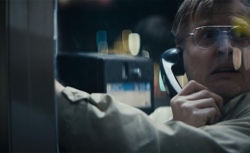 As played against type by
As played against type by  In the VHS bonanza,
In the VHS bonanza,  Still, Slash Dance has a little going for it, one being Maranne’s performance. Like her by-the-book cop character, it has a just-the-facts approach that suggests she’s a total pro; whether the movie turns out shoddy, she’s going to treat it as if she were playing both
Still, Slash Dance has a little going for it, one being Maranne’s performance. Like her by-the-book cop character, it has a just-the-facts approach that suggests she’s a total pro; whether the movie turns out shoddy, she’s going to treat it as if she were playing both